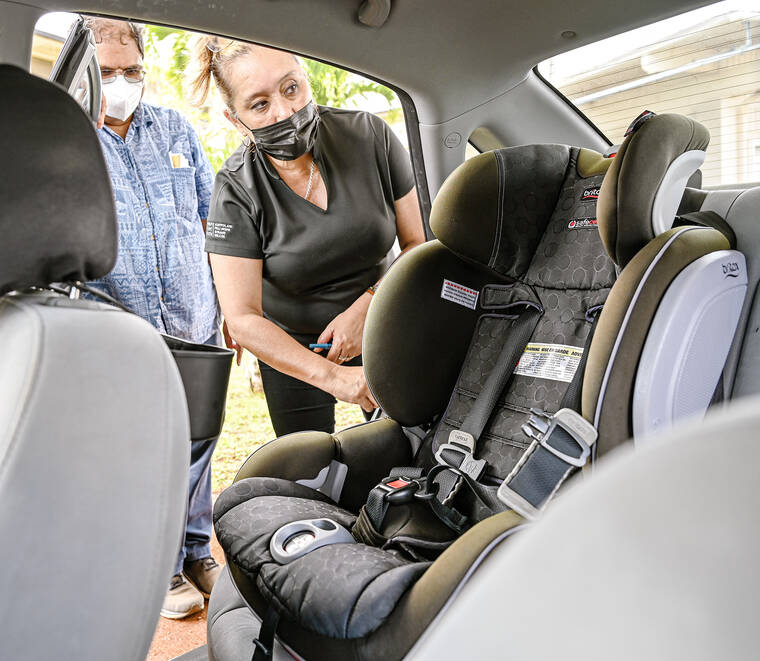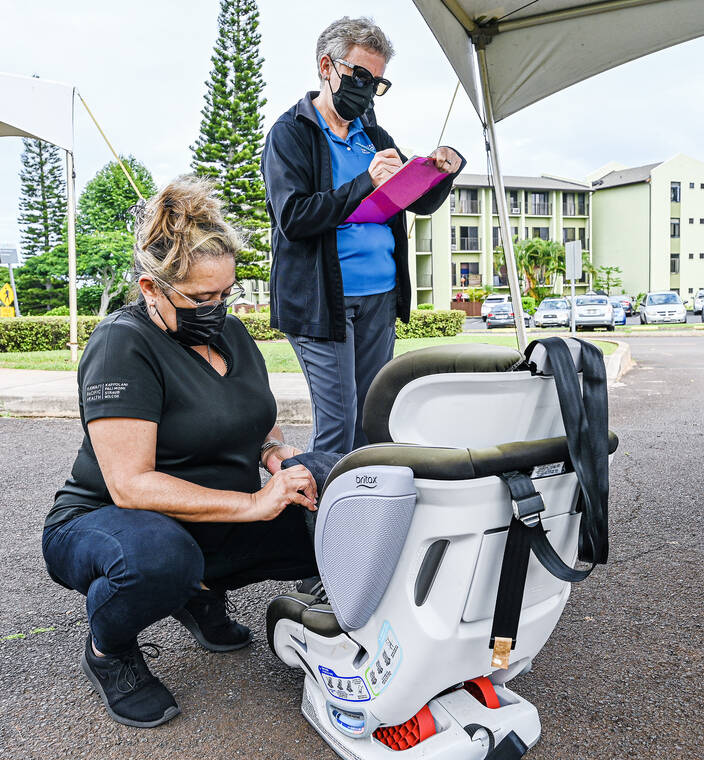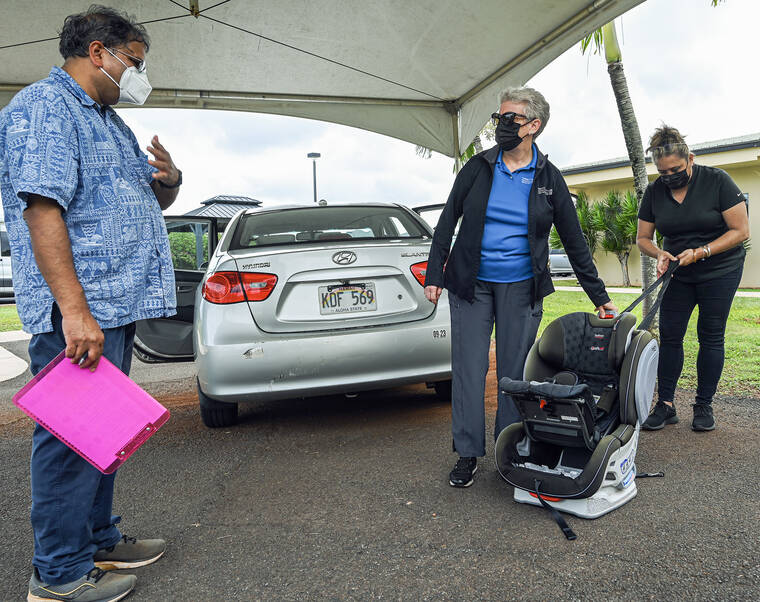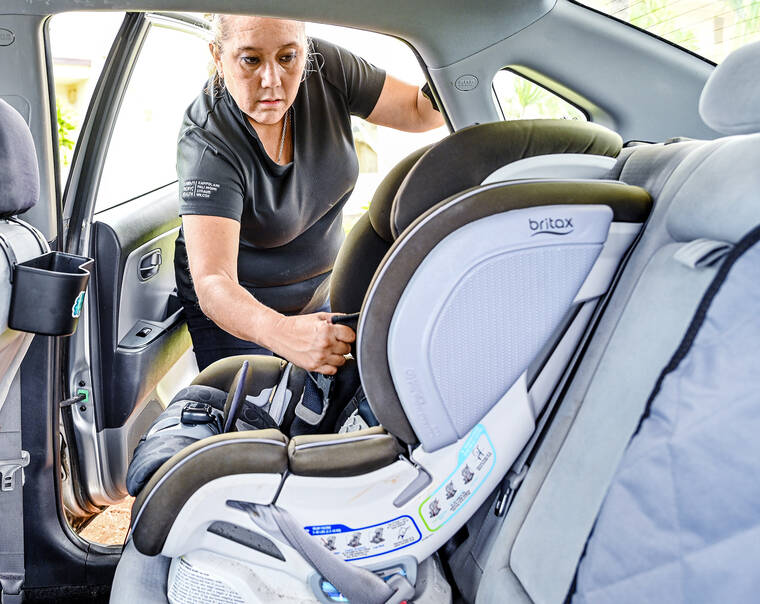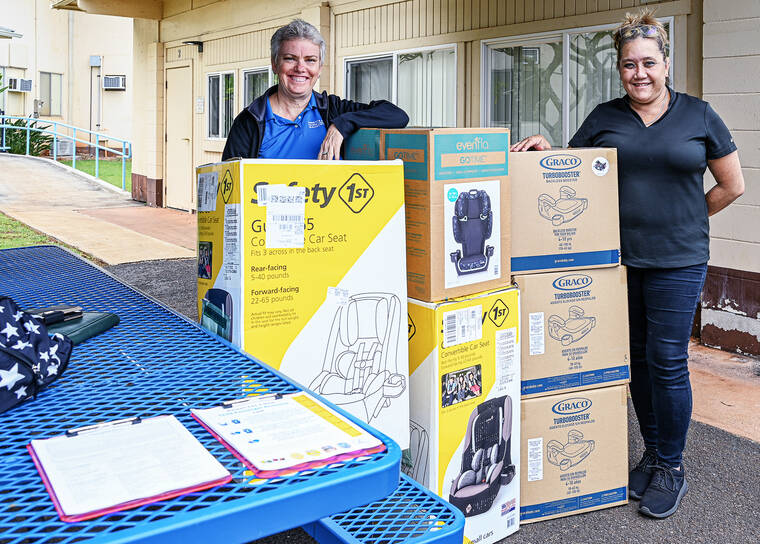LIHU‘E — Certified Child Car Seat inspector Lisa Dau from the Kapiolani Medical Center for Women and Children said a new law pertaining to child passenger restraint was passed in July, and it’s beneficial for users of keiki car seats and boosters to have their equipment checked for not only compliance with the new law, but also for safety effectiveness.
Some of the main points of the new law include:
• A child passenger restraint or booster seat is required for children 4 years old, but less than 10 years old, unless the child is more than 4 feet, 9 inches in height;
• A rear facing or forward facing child passenger restraint system is required from 2 years old up to 4 years old;
• If the child is under 2 years old, then the child must be properly restrained in a rear-facing child passenger restraint system.
Under Hawai‘i Revised Statues, all children under the age of 10 years old must be restrained regardless of how many seat belt assemblies are in the vehicle. Violators could face fines of $100 or more, be required to attend a driver’s education class, and pay additional surcharges.
Dave Sharma of the Kaua‘i District Health Office was tasked with delivering replacement child car seats and boosters for equipment the certified car seat inspectors found that did not meet the safety standards set forth by the pediatric association.
The free keiki car seat inspection was held on Thursday, Oct. 20, at the Wilcox Medical Center with appointments encouraged, but open to anyone who arrived at the inspection station located in the back of the hospital with signage guiding motorists to its location.
Dau and Shelly Waiolama, both spending the day on Kaua‘i for inspecting child passenger restraint systems, overcame the initial objections by Sharma, and got to work inspecting the car seat Sharma had installed in his car for use by his young child.
Discovering the car seat was improperly secured by the vehicle’s restraint system, the pair undid the installation and set out to check for the particular seat’s expiration and recall notices requiring new parts.
“The average life of a car seat is about 10 years,” Waiolama said. “This is important for people who purchase equipment from garage sales. You don’t know how old it is.”
Additionally, car seats may have been involved in auto crashes that affect the safety features of the car seat.
Once cleared, the inspectors turned their attention to Sharma’s car, checking against the Vehicle Identification Number for any recalls or problems that needed attention from the car’s service center.
These clearances taken care of, the pair focused on installing the car seat, properly, and explaining the seat’s additional restraint system that ensures the child’s safety and comfort.
With the child not present, Sharma called home to get his child’s measurements, which the inspectors used to adjust the seat’s restraint system to the growing child’s measurements.
“This feels a lot more secure after it was redone,” Sharma said. “As a person who used YouTube to install the car seat, I’m embarrassed to say it was done all wrong.”
The improper installation compromises the safety of the child, not to mention the child’s discomfort while riding in the car seat.
“We want them to come back,” Sharma said. “Not only to check car seats, but to train Kaua‘i people to become certified inspectors. Currently, we don’t have any certified inspectors on Kaua‘i after the certifications expired at the height of the pandemic, and we haven’t replaced those certifications.”


